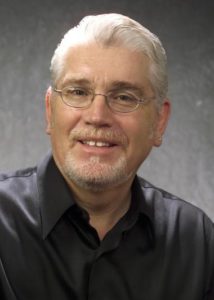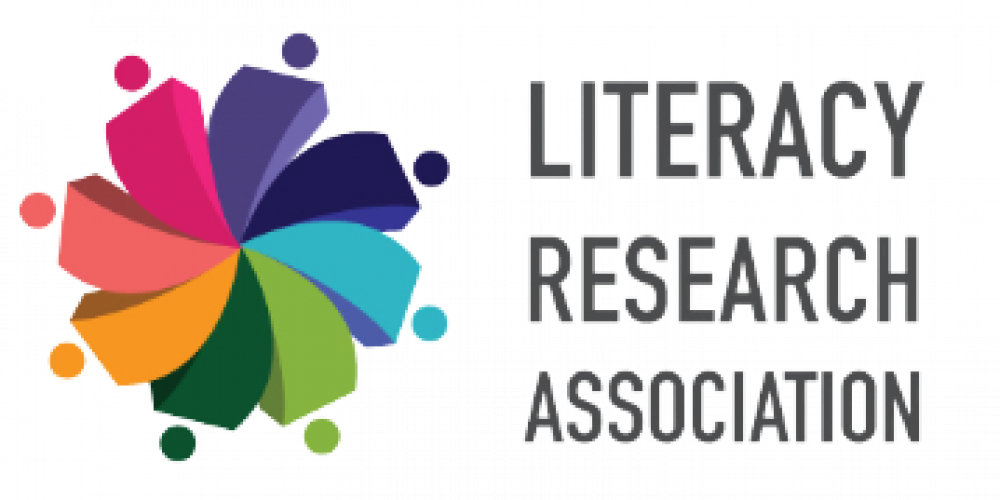 The Literacy Research Association is honored to announce that President David B. Yaden will be delivering his Presidential Address at this years LRA 72nd Annual Conference. Dr. Yaden’s address, titled “Chasing Shadows : Why There Cannot be a ‘Simple’ Science of Literacy” will contest the narrow perceptions of what has been called the science of reading movement, and will focus upon another contender for the science throne—that of Developmental Science. Using examples from emergent bilingual children’s early writing, he will attempt to show that any “simple” model of reading not only wastes useful data about children’s literacy performances but conflates the data with static states of being which reduce the conceptual complexity of literacy development. Developmental Science is a branch of psychology with deep roots in the child study movement and was established around the turn of the 20th century. It is field devoted to studying development “in motion.” L. S. Vygotsky was a key figure in this movement early on, although under the name of pedology, and contributed substantially to the foundation principles in the field. Developmental Science’s definitive scholarly voice has been carried on and consistently represented by subsequent volumes of the Handbook of Child Psychology (1946, 1954, 1970, 1983, 1998, 2006) with its most recent edition entitled the Handbook of Child Psychology and Developmental Science (2015). Although Vygotsky himself passed long before the first volume was published in 1946, his perspectives on child development, learning, and literacy are well represented, nonetheless. Dr. Yaden’s contention is that models based upon the science of reading demand a slavish focus on the alphabet and figural convention. However, current research in Developmental Science urges to do the opposite, as did Vygotsky, Piaget, and other developmental theorists such as Urie Bronfenbrenner, Gerald Edelman, and Michael Tomasello. Developmental Science challenges the literacy field to embrace the complexity of the developmental processes, and as Vygotsky further argued, “bring the child to an internal understanding of writing” in whatever language that may be.
The Literacy Research Association is honored to announce that President David B. Yaden will be delivering his Presidential Address at this years LRA 72nd Annual Conference. Dr. Yaden’s address, titled “Chasing Shadows : Why There Cannot be a ‘Simple’ Science of Literacy” will contest the narrow perceptions of what has been called the science of reading movement, and will focus upon another contender for the science throne—that of Developmental Science. Using examples from emergent bilingual children’s early writing, he will attempt to show that any “simple” model of reading not only wastes useful data about children’s literacy performances but conflates the data with static states of being which reduce the conceptual complexity of literacy development. Developmental Science is a branch of psychology with deep roots in the child study movement and was established around the turn of the 20th century. It is field devoted to studying development “in motion.” L. S. Vygotsky was a key figure in this movement early on, although under the name of pedology, and contributed substantially to the foundation principles in the field. Developmental Science’s definitive scholarly voice has been carried on and consistently represented by subsequent volumes of the Handbook of Child Psychology (1946, 1954, 1970, 1983, 1998, 2006) with its most recent edition entitled the Handbook of Child Psychology and Developmental Science (2015). Although Vygotsky himself passed long before the first volume was published in 1946, his perspectives on child development, learning, and literacy are well represented, nonetheless. Dr. Yaden’s contention is that models based upon the science of reading demand a slavish focus on the alphabet and figural convention. However, current research in Developmental Science urges to do the opposite, as did Vygotsky, Piaget, and other developmental theorists such as Urie Bronfenbrenner, Gerald Edelman, and Michael Tomasello. Developmental Science challenges the literacy field to embrace the complexity of the developmental processes, and as Vygotsky further argued, “bring the child to an internal understanding of writing” in whatever language that may be.
David B. Yaden, Jr. (Ph.D., University of Oklahoma) is President of the Literacy Research Association and Professor of Language, Reading and Culture in the Department of Teaching, Learning and Sociocultural Studies in the College of Education at the University of Arizona. He also holds affiliate faculty positions in the Department of Public and Applied Humanities, College of Humanities, and the Interdisciplinary Ph.D. Program in Second Language Acquisition and Teaching. In addition, he serves as Co-Director of the Research Group on Child Development, Research and Policy and as Director of the Eye-Movement Miscue Analysis Laboratory in the College of Education. Prior to his present position at the University of Arizona, he held faculty appointments at the University of Oklahoma, Emory University, the University of Houston, the University of Southern California and was a Visiting Professor & Scholar at Boston University.
Dr. Yaden served as co-editor (with Patty Anders) of LRA’s flagship journal, the Journal of Literacy Research (2013-2016), and is currently the co-editor (with Theresa Rogers) of the forthcoming Literacies and Languages volume of the International Encyclopedia of Education, containing the research contributions of 100 scholars world-wide, both in the Global North and South, addressing multiple topics across the field of literacy studies. Yaden also was a Principal Investigator (1997-2002) in the federally funded Center for the Improvement of Early Reading Achievement (CIERA) where he created and supervised the implementation of an early literacy curriculum for Spanish-speaking preschoolers in inner-city Los Angeles. Most recently in Arizona, he directed a statewide consortium of researchers from Arizona’s three major universities (University of Arizona, Arizona State University, and Northern Arizona University) in the evaluation of the state’s early childhood initiative, First Things First, an investment of $27,000,000 in the study of over 9,000 children, ages birth–7 years-of- age, to evaluate health, developmental and educational factors contributing to school readiness.
Dr. Yaden’s research interests and specializations include developmental issues in early childhood education, the acquisition of literacy and biliteracy in young children, family literacy, theories of reading disability, micro genetic and developmental research design and the application of complex adaptive systems theory to growth in reading and writing. In addition to numerous journal articles and book chapters on various aspects of literacy in young children, Yaden’s publications include several, archival, state-of-the-field integrative reviews in such volumes as the Handbook of Research Methods in Early Childhood Education (2014) on developmental research design in early childhood, the Handbook of Reading Research Volume III (2000) on emergent literacy, the Handbook of Research in the Teaching of the English Language Arts (2003, 2011), on family literacy, and in subsequent volumes of the Handbook of Research on the Education of Young Children (2006, 2013) related to linguistically and culturally diverse children acquiring more than one language. He has presented his work regularly over the past four decades at professional meetings such as the International Reading Association, the National Association for the Education of Young Children, the Child Welfare League of America, the World Congress of Reading, the American Educational Research Association, the Literacy Research Association, the National Council of Teachers of English, the Jean Piaget Society, and the National Council for Research on Language and Literacy.
Yaden joins an esteemed list of plenary speakers and panelists slated to speak at this year’s conference. Read more about each of the sessions below:
• Bryan Brayboy
• Guadalupe Valdes
• Angela Valenzuela
• Arlette Willis
• Integrative Research Review Panel
You can view the latest COVID recommendations here. To register for the LRA conference, please visit the LRA website


